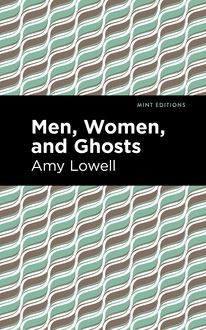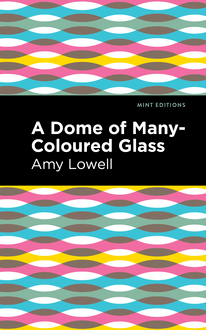-
 Univers
Univers
-
 Ebooks
Ebooks
-
 Livres audio
Livres audio
-
 Presse
Presse
-
 Podcasts
Podcasts
-
 BD
BD
-
 Documents
Documents
-
- Cours
- Révisions
- Ressources pédagogiques
- Sciences de l’éducation
- Manuels scolaires
- Langues
- Travaux de classe
- Annales de BEP
- Etudes supérieures
- Maternelle et primaire
- Fiches de lecture
- Orientation scolaire
- Méthodologie
- Corrigés de devoir
- Annales d’examens et concours
- Annales du bac
- Annales du brevet
- Rapports de stage
La lecture à portée de main
Vous pourrez modifier la taille du texte de cet ouvrage
Découvre YouScribe en t'inscrivant gratuitement
Je m'inscrisDécouvre YouScribe en t'inscrivant gratuitement
Je m'inscrisEn savoir plus
Vous pourrez modifier la taille du texte de cet ouvrage
En savoir plus

Description
Featuring six works of short fiction, An Arrow in a Sunbeam and Other Tales promotes morals and regionalist pride. Each containing a unique theme and virtue, these stories provoke thought while following the lives of compelling characters. Miss Sydney’s Flowers encourages the acceptance of change through the depiction of Miss. Sydney, a long-term resident of her town. When the city decides to pave a new road next to her home, Miss Sydney is upset and resentful of the change. However, as the days go by, she realizes the benefits of having a busy street near her house. In A Brave Boy, two brothers, Fred and Albert, who are as opposite as can be, discuss what they would do in the event of a robbery, pondering the true meaning of bravery. Following the life of a mysterious elderly woman, Lady Ferry depicts the relationship between Lady Ferry and a young girl who is left in the care of her cousin after her parents embark on a long sea voyage. Finally, in the title story, An Arrow in a Sunbeam, a church minister seeks out a sad, shabbily dressed widow that he noticed during a service. Originally planning to be of help to her, the minister is shocked when he discovers he has much to learn from the widow. Described as a touching and masterfully-written collection, An Arrow in a Sunbeam and Other Tales by Sarah Orne Jewett is sentimental and intriguing. First published for children, An Arrow in a Sunbeam and Other Tales promotes timeless virtues and themes in a gentle and accessible manner, yet is sophisticated and applicable to older audiences. This edition of An Arrow in a Sunbeam and Other Tales by Sarah Orne Jewett features an eye-catching new cover design and is presented in a font that is both modern and readable. With these accommodations, this edition is accessible and appealing to contemporary audiences, restoring An Arrow in a Sunbeam and Other Tales to modern standards while preserving the original tranquility and beauty of the work of Sarah Orne Jewett.
Sujets
Informations
| Publié par | Mint Editions |
| Date de parution | 21 mai 2021 |
| Nombre de lectures | 0 |
| EAN13 | 9781513284927 |
| Langue | English |
Informations légales : prix de location à la page 0,0300€. Cette information est donnée uniquement à titre indicatif conformément à la législation en vigueur.
Extrait
An Arrow in a Sunbeam and Other Tales
Sarah Orne Jewett
An Arrow in a Sunbeam and Other Tales was first published in 1880.
This edition published by Mint Editions 2021.
ISBN 9781513279909 | E-ISBN 9781513284927
Published by Mint Editions®
minteditionbooks .com
Publishing Director: Jennifer Newens
Design & Production: Rachel Lopez Metzger
Project Manager: Micaela Clark
Typesetting: Westchester Publishing Services
C ONTENTS A N A RROW IN A S UNBEAM Sarah Orne Jewett M ISS S YDNEY’S F LOWERS Sarah Orne Jewett A B RAVE B OY C. S. Sleight L ADY F ERRY Sarah Orne Jewett A B IT OF S HORE L IFE Sarah Orne Jewett H OW L ILY G OT THE C AT Frances Lee
A N A RROW IN A S UNBEAM
T he minister of a fashionable church had noticed Sunday after Sunday a little old lady with a sad, patient face, dressed in very shabby mourning, sitting in the strangers’ pew.
Like Job this good man could say, “The cause that I knew not, I sought out.” He soon learned from the sexton her name and residence, and was surprised to find her in the very topmost room of a house, amid evidences of real poverty.
In the one little window bloomed a monthly rose and a vigorous heliotrope, and beside the pots lay half-a-dozen books, such as are rarely seen in the homes of the very poor. On the wall hung two fine engravings, and an old fashioned gold watch was suspended from a faded velvet case over the mantel piece.
Her story, when she was induced to tell it, was neither new nor startling. She had long been a widow. Her children had been called from her, till now she had but one, and he, being a cripple, could do little more than supply his own absolute wants by his work as a repairer of watches.
The pastor was charmed with her patient endurance of what others would call the hard discipline of life, and when he left her he felt that he had been a learner instead of a teacher in that poor room.
Being too delicate to allude to her apparent poverty, he said at parting, “As you are a stranger among us, I will send some of the visitors of the church to cheer and comfort you.”
He selected two bright, rosy girls, full of life and happiness, of whose visits among the poor he had often heard.
They came to the widow like sunbeams through a storm. They talked cheerily, and did not appear to notice the bareness of the room. They asked something of her history, and told of their grandmothers, who also had seen much sorrow; and in this way drew her out till she told of her former competency, of her early advantages in England, and of all the misfortunes which had brought her to her present position. “And yet,” she said, “I have little to complain of while I have the love and tender care of such a son as Walter.”
Little by little, without a complaint from her, they found that the old lady lacked many things for her comfort. Their sympathies were aroused. It would be a delight to make her happy by gifts that would be of service to her.
Lucy Grey, a girl full of fun as well as of kindness, said, “I wish you would let me make you a bonnet; I make lovely ones. Grandma won’t wear a milliner’s bonnet, she likes mine so much better.”
Grace Wheeler volunteered to make a dress and caps, adding, playfully, “As my dear grandma is gone, you must let me adopt you and do all I can for you. There are four of us girls always looking round for somebody to help. You can call on us for anything you want.”
Four young girls, who laughingly styled themselves “The Quartette of Mercy,” met at Grace Wheeler’s house with materials for a dress, and a bonnet and caps. The old lady was coming two hours afterward to be fitted, having being measured before they left her house.
The girls were in a perfect gala of joy that bright afternoon. They chatted merrily while working, and one would have thought they were making costumes for comic tableaux rather than the garb of a sorrowful widow.
“I’ll tell you, girls,” said Lucy Grey, “the old dowager will shine when she gets my bonnet on!” and trying it on over her chestnut curls, she added, “I half-wish I was a downfallen lady myself,—a haberdasher’s daughter from England! Oh, I hope I shall be a widow some time! Widows’ caps are so becoming!”
“Well,” replied Grace, laughing, “do your best for Goody Horn, and maybe she’ll let you have ‘dear Walter.’ Then you’ll be a widow soon,—he’s so feeble.”
“Oh, I wish I had the dressing of her! ‘She’d surprise herself,’ as the Dutchman said. I’d put a canary-coloured pompon and a white aigrette in that bonnet, and”—here she slipped a scarlet bird out of her own hat and stuck it into a fold of the crape Lucy was laying on to the old fashioned close frame—“I’d make her an upper skirt with a tie-back, get scarlet stockings and low shoes, and”——
“Pho! you’d make the dear old soul look like Mother Hubbard!” cried another.
“No,” said Grace; “but she looks now like
“Little Dame Crump, with her brand-new broom;”
and no doubt Walter looks either like Mother Hubbard’s dog, or—or I don’t know what.”
“Oh, by-the-way, did you notice a violin on the bureau? Whoever gets ‘dear Walter’ will have a chance to do all the family dancing. The dowager’s too old, and Walter’s too lame; but there, what stuff I’m talking; it’s well mother isn’t within hearing. She won’t let me have any sport. But I do think old folks are so comical! I’ll do anything in the world to help them, though.”
They worked on some time, and in the real kindness which was hidden under this nonsense they laid plans for the dear old stranger’s future comfort.
“Why, girls, it’s time she was here now!”
“Nora,” called Grace, as a girl passed the door, “when an old lady comes, send her right up stairs.”
“There was an old person here an hour ago, and as you told me not to let any one in who asked for you for an hour, I told her to sit down in the hall. I suppose she’s there now. I forgot all about her,” was the reply.
Grace flew down, but there was no one there.
“That was some old beggar who got tired of waiting. I’m sure she’ll be here soon,” said Lucy.
But she did not come, and they grew tired of waiting to try on the dress and hat. So they resolved to go, all four together, the next day, to the “opening at Madam Horn’s,” and carry the things themselves.
They did so; but when the “dowager” opened the door at their knock, they hardly knew her. She looked straight, and solemn, and cold. She did not even ask them in; but they went in and seated themselves.
Grace said, “You didn’t come yesterday to try on the dress, and thinking you might be ill, we brought it here.”
“But I did go, ladies. I went an hour earlier than you asked me, to beg that the dress might be cut perfectly plain, without upper skirt or flounce. The girl seated me in the hall, and while I sat there, I was forced to hear myself and my son ridiculed and turned to scorn in a way I could not believe possible.
“I have done nothing to merit this. I never begged of you, nor sought your sympathy in my sorrows, and I cannot understand why I am made the butt of your scorn.”
“Oh, Mrs. Horn,” cried Lucy, “we were only in sport! I hope you will forgive us.”
“Is it sport to cast contempt on an aged woman who has been walking for years in a fiery furnace upheld and comforted by God? Is it sport to ridicule an unfortunate boy who has a continual warfare with pain to keep up this poor home?”
“Oh, don’t speak of it again!” said Grace blushing deeply and half-ready to cry, as she untied the package in her hand, while Lucy unpinned the paper that held the bonnet.
“Put them up, please, young ladies. I cannot look on them, and I never could wear them. When you first came, I told Walter that I felt as if a sunbeam had come into the house and remained behind you. Last night I told him that my new sunbeam had an arrow concealed in it.”
“But you will take the things, after all our trouble?” implored Grace, with tears dropping from her eyes.
“No, never; I can hear the Gospel in my old clothes. I should take no pleasure in these; they are associated with too painful thoughts. I hope God will bless you, children, and save you from an old age of poverty, and give you what He has given me,—a full trust in His love and tenderness. Good-by.”
You can imagine the feelings of those young girls when they left that poor room in tears.
Respectful treatment is more to the sensitive poor than gifts of food, garments or money; and nothing is so likely to harden the hearts of the young as the habit of getting sport out of the sorrows and infirmities of others.
M ISS S YDNEY’S F LOWERS
I
H OWEVER SENSI BLE IT MAY HAVE been considered by other people, it certainly was a disagreeable piece of news to Miss Sydney, that the city authorities had decided to open a new street from St. Mary Street to Jefferson. It seemed a most unwarrantable thing to her that they had a right to buy her property against her will. It was so provoking, that, after so much annoyance from the noise of St. Mary Street during the last dozen years, she must submit to having another public thoroughfare at the side of her house also. If it had only been at the other side, she would not have minded it particularly; for she rarely sat in her drawing-room, which was at the left of the hall. On the right was the library, stately, dismal, and apt to be musty in damp weather; and it would take many bright people, and a blazing wood-fire, and a great deal of sunshine, to make it pleasant. Behind this was the dining-room, which was really bright and sunny, and which opened by wide glass doors into a conservatory. The rattle and clatter of St. Mary Street was not at all troublesome here; and by little and little Miss Sydney had gathered her favourite possessions from other parts of the house, and taken one end of it for her sitting-room. The most comfortable chairs had found their way here, and a luxurious great sofa which had once been in the library, as we’ll as the bookcase which held her favourite books.
The house
-
 Univers
Univers
-
 Ebooks
Ebooks
-
 Livres audio
Livres audio
-
 Presse
Presse
-
 Podcasts
Podcasts
-
 BD
BD
-
 Documents
Documents
-
Jeunesse
-
Littérature
-
Ressources professionnelles
-
Santé et bien-être
-
Savoirs
-
Education
-
Loisirs et hobbies
-
Art, musique et cinéma
-
Actualité et débat de société
-
Jeunesse
-
Littérature
-
Ressources professionnelles
-
Santé et bien-être
-
Savoirs
-
Education
-
Loisirs et hobbies
-
Art, musique et cinéma
-
Actualité et débat de société
-
Actualités
-
Lifestyle
-
Presse jeunesse
-
Presse professionnelle
-
Pratique
-
Presse sportive
-
Presse internationale
-
Culture & Médias
-
Action et Aventures
-
Science-fiction et Fantasy
-
Société
-
Jeunesse
-
Littérature
-
Ressources professionnelles
-
Santé et bien-être
-
Savoirs
-
Education
-
Loisirs et hobbies
-
Art, musique et cinéma
-
Actualité et débat de société
- Cours
- Révisions
- Ressources pédagogiques
- Sciences de l’éducation
- Manuels scolaires
- Langues
- Travaux de classe
- Annales de BEP
- Etudes supérieures
- Maternelle et primaire
- Fiches de lecture
- Orientation scolaire
- Méthodologie
- Corrigés de devoir
- Annales d’examens et concours
- Annales du bac
- Annales du brevet
- Rapports de stage












